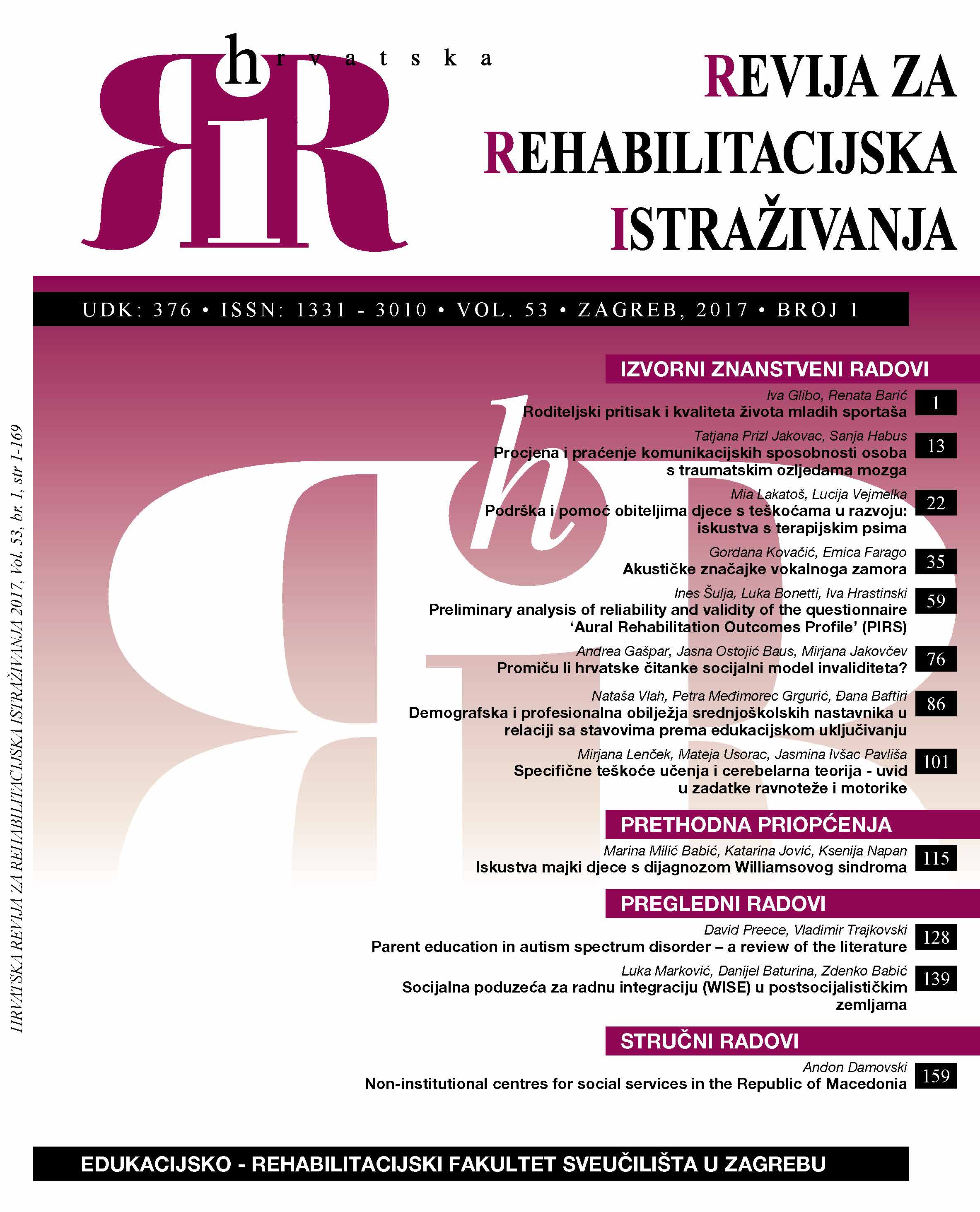Non-institutional centres for social services in the Republic of Macedonia (with special focus on the Department for Organized Living Support in the community of people with intellectual disabilities)
Non-institutional centres for social services in the Republic of Macedonia (with special focus on the Department for Organized Living Support in the community of people with intellectual disabilities)
Author(s): Andon DamovskiSubject(s): Welfare systems, Welfare services, Inclusive Education / Inclusion
Published by: Sveučilište u Zagrebu, Edukacijsko-rehabilitacijski fakultet
Keywords: social protection; non-institutional centres; social services; intellectual disability;
Summary/Abstract: The increased importance of the so-called relational and strategic model of social activity in social work, as opposed to previous medical models, provide a transparent promotion of the rights of people with disabilities and of their inclusion in the society. In the frame of this model, the concept of sustained housing of people with disabilities is considered as an alternative to the institutional form of care-taking and may be critical for accomplishing social inclusion for at-risk groups. This social policy approach essentially promotes the human rights of people with disabilities, suggesting they should have the opportunity to attain their goals, to make their own choices, to acquire new skills, to develop relationships with other people, and to get adequate support from skilled professionals in fulfillment of their individual needs in their living environment. In this paper, an analysis of the non-institutional centres that provide social services in the Republic of Macedonia has been made, with particular focus on the Department for Organized Living Support in the community of people with intellectual disabilities.
Journal: Hrvatska revija za rehabilitacijska istraživanja
- Issue Year: 53/2017
- Issue No: 1
- Page Range: 159-169
- Page Count: 11
- Language: English

